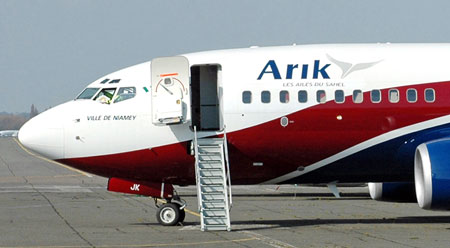Positioning FAAN as ACI accredited training centre

The Airport Council International (ACI), last year designated the Federal Airports Authority of Nigeria’s training school as its training centre.
This is aimed at bridging the gap in the training of aviation personnel in order to be abreast with development in the sector. Chukwuemeke Iwelunmo, writes on the need to re-position the training school for optimal performance.
President of the Airports Council International ACI, Engr. Saleh Dunoma stood tall last year at the 27th ACI Airports Council International ACI Africa / World Annual General Assembly Conference & Exhibition in Port Louis, Mauritius, where it was stated that the Federal Airports Authority of Nigeria (FAAN) training school has been accredited as a facility for the ACI to conduct their trainings to groom aviation personnel.
Since the endorsement, Nigeria has become a key player as far as global aviation training is concerned and also a pace setter in the West African sub- region.
Read Also: NAMA boss assures airlines, stakeholders of improved safety
The ACI Accredited Training Institutes (ATI) is a network of airport training units that offer performance-based, up-to-date courses and other learning activities accredited by ACI that meet international standards for quality in workplace learning.
With the upgrade of FAAN Training School, it means that the school has become an accredited Training Centre for the ACI to aid capacity building and expertise development through access to ACI’s training and review programmes.
Apart from boosting human capacity, Nigeria has a lot to benefit from this giant strides recorded by FAAN.
First is that the country has already received global airport industry recognition for meeting international standards of excellence in training for course design, content and delivery;
With the accreditation, FAAN can now issue ACI co-branded certificates to students who successfully complete the approved ACI training programmes in the country.
There is also opportunity for Web and publication listing as an ACI ATI, while the training centres will be empowered to use ACI ATI logo for specified promotions and approved ACI course that are conducted by the Training Department.
In addition, FAAN as an existing ACI Training Centre will be eligible to get ATI status and receive a preferential discounted annual ATI membership fee.
The ATI initiative came on board as organizations worldwide are increasingly confronted with the need to continually ensure that human resources possess the knowledge and skills needed to perform their jobs.
Some of the objectives for the initiative is to increase the professional knowledge and capability of airport staff worldwide in order to improve the performance of airports; provide quality driven ACI accredited courses delivered by qualified, knowledgeable instructors that are easily accessible through ACI global network of Institutes.
It is also believed that reinforcing the ACI Training brand translates into a best in class product- whether this product is delivered through ACI Global Training directly, an ATI and/or through ACI online delivery channels;B
Another objective of the initiative, according to ACI is to build capacity in “underserved” markets with a goal to be geographically dispersed to ensure full global coverage in providing airport training and education solutions.
ACI also stated that, provision of a framework of cost effective educational training programmes which can be adapted to the local language of the established ATI is equally one of its aims.
In Nigeria however, ACI ATI initiative has, over the years, helped airport training departments develop and offer quality learning activities that fully meet internationally recognized standards for excellence in workplace learning.
In his speech at the ACI Africa /World Annual General Assembly Conference & Exhibition after the accreditation was announced, Engr Dunoma who is also the Managing Director of FAAN had informed the audience that a young population, growing labour force, accelerating adoption of new technology and urbanization are all factors that favour future economic growth, and subsequently aviation development, across Africa.”
“However, we are also aware that Africa is a region that faces many challenges including political strife, security and safety concerns, lack of volume, protectionism, currency complications and sluggish growth in income levels in some key markets.”
Despite the fact that an ACI Accredited Centre was being established in Nigeria, Dunoma highlighted some ACI initiatives that would aid the region’s airport tackle the challenges that were raised at the conference.
Dunoma said, “You will hear of the progress that the Airport Excellence (APEX) programme has brought to the region—helping many African airport improve the application of ICAO standards and recommendation practices, and international best practices. Out of the 14 APEX reviews that are scheduled for 2017, half of those were or will be in Africa.”
“And, since the beginning of our partnership with the European Aviation Safety Agency (EASA), the number of safety reviews in Africa continues to grow.
The Safety Assessors Training programme, an initiative that helps build expertise in the region, successfully achieved phase one, where 20 new assessors are now part of the APEX pool of experts.
In fact, the first all African review team conducted an assessment in Bangui this July and we should expect many more to come”, Dunoma noted.
Stating further, the ACI boss added, “and, you will learn of ACI Africa’s new development programme for the region’s airports.
The new initiative is designed to help and assist member airports to improve and respond to different challenges, including those posed by security operations, and achieve professional excellence in the application of international standards and best practices.”








